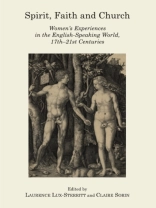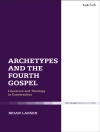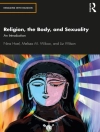Contradictions are legion when it comes to women and spirituality. In Christian cultures, the worth of the female sex is highly ambivalent, since virginity and motherhood are construed respectively as badges of purity and fruitfulness, whilst the biological processes which underlie them are considered taboo or impure. Throughout history, women are in turn represented as inferior, defective creatures or as privileged ‚empty vessels‘ in their relationship with the divine. This polarized conception of woman has influenced the way in which religious institutions, learned writers, or indeed women themselves consider the female personal and collective relationship with the supernatural, with the divine, and with the institutions which represent it.Through eleven original essays, this volume questions how women from the English-speaking world have negotiated their roles in the spiritual and religious spheres. From early-modern Catholics and Puritan groups to twenty-first century nuns, Anglican ministers and Mormons, how did women define their roles in male-dominated institutions? How did they react to the public perceptions of their bodies as either incompatible with or facilitating access to the divine? The questions at the core of this book hinge upon the articulation between the female self (body and soul) and its experience of the preternatural, of faith, and of institutionalized groups. Are there specific forms of female spirituality and do they lead to a feminized/feminist conception of God?
Laurence Lux-Sterritt & Claire Sorin
Spirit, Faith and Church [PDF ebook]
Women’s Experiences in the English-Speaking World, 17th-21st Centuries
Spirit, Faith and Church [PDF ebook]
Women’s Experiences in the English-Speaking World, 17th-21st Centuries
Dieses Ebook kaufen – und ein weitere GRATIS erhalten!
Format PDF ● Seiten 255 ● ISBN 9781443834896 ● Herausgeber Laurence Lux-Sterritt & Claire Sorin ● Verlag Cambridge Scholars Publishing ● Erscheinungsjahr 2011 ● herunterladbar 6 mal ● Währung EUR ● ID 2611384 ● Kopierschutz Adobe DRM
erfordert DRM-fähige Lesetechnologie












